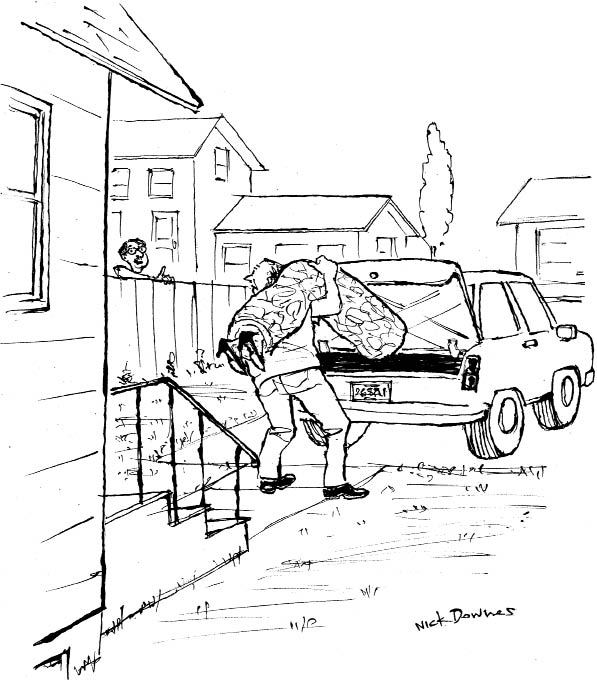When I told a young pianist that I was planning to write a piece about wrong notes he nearly tore my throat out. ‘I’d like to see you on stage in front of thousands of people trying to play Brahms’s Second Piano Concerto,’ he snapped.
My friend hasn’t played the concerto yet and presumably he’s dreading it: even the most seasoned soloists describe its left-hand leaps as the equivalent of a motorcycle jump across the Grand Canyon. At any rate, he left me in no doubt that wrong notes are a seriously touchy subject for pianists. No other instrument commands such a thrilling emotional range — but its demands in terms of memory and motor skills are incredibly cruel. And we pianophiles are cruel, too. The more you train your ear to hear nuances of rubato and pedalling, the easier it is to spot a finger-slip or memory lapse. Which, inevitably, we tend to talk about after a concert, if only to prove we’ve noticed. (Though, in our defence, this is nothing compared with the cold-hearted glee of balletomanes discussing a fall.)
I didn’t go to many piano recitals until I arrived in London in my 20s. Until then, I’d assumed that the musicians with the most pristine technique in recordings would be the most note-perfect in live performance. Not so. I hesitate to single anyone out but, what the hell: Krystian Zimerman has made such a prat of himself with his anti-American rants that I don’t feel guilty mentioning how shocked I was by his fumbled notes in a recital 20 years ago. Also, as I discovered when I criticised Zimerman in a blog post recently, some of his fans are as unpleasant as he is, and I don’t want to pass up the opportunity to annoy them again.
Wrong notes no longer shock me. If you want perfection, buy a CD, from which smudges will have been digitally removed even if the cover says ‘live’. Or catch a pianist on the competition circuit who has been playing Ravel’s Gaspard de la nuit since he or she was nine years old and can dispatch it without a hint of nerves (or imagination).
When do wrong notes matter? The simple answer is: when they get in the way of the music. But different listeners have different levels of tolerance — just as, in the vinyl era, some people could put up with more scratches than others. A lot depends on the type of mistake. If a pianist isn’t too bothered by a slip in the heat of the moment then we shouldn’t be, either. There are notorious passages that most soloists would rather smudge at full speed than negotiate by slowing down wimpishly. Perhaps the best known trouble spot is the coda to the middle movement of Schumann’s Fantasy in C, where the hands skip crazily in opposite directions simultaneously. But if, on the other hand, mistakes are produced by nerves, then the audience senses it — especially if the nerves lead to a memory lapse (something much more feared by performers than technical slips).
One virtuoso told me that he has nightmares about misremembering passages in concertos. ‘Mozart is the worst, because there’s nowhere to hide,’ he said. If you send a plain arpeggio in the wrong direction, that sticks out more than a mistake in a romantic work, which can be disguised by improvisation. There’s a recording on YouTube of Emil Gilels totally losing the plot of the Scriabin Fourth Sonata, but his 12 bars of chromatic fudge sound so much like the real thing that one ends up admiring him more rather than less.
Gilels was one of those pianists — they include Schnabel, Cortot, Rubinstein, Kempff, even Richter — who were still playing at an age when their fingers and memories were fallible. Cortot really pushed his luck (there are Beethoven sonatas so approximate that they have never been released) but, on the whole, we should thank God they did. Some great artists reach their interpretative peak years after they have passed their technical one. They take risks that they know are unlikely to produce clean results, but they don’t care because they can still say what they want to say. And more fool us if we decide not to hear Pollini or Kovacevich, to name two of today’s less reliable keyboard giants, just because we crave perfection.
Listen to Artur Schnabel in the first movement of Brahms’s First Piano Concerto with Szell and the Cleveland (available on Naxos): there’s one cascade of octaves where not a single finger quite hits its target. ‘Are you sure you wouldn’t like to record that again?’ an engineer is supposed to have asked nervously. ‘I don’t think so,’ came the reply. ‘It might be more accurate, but it wouldn’t be as good.







Comments